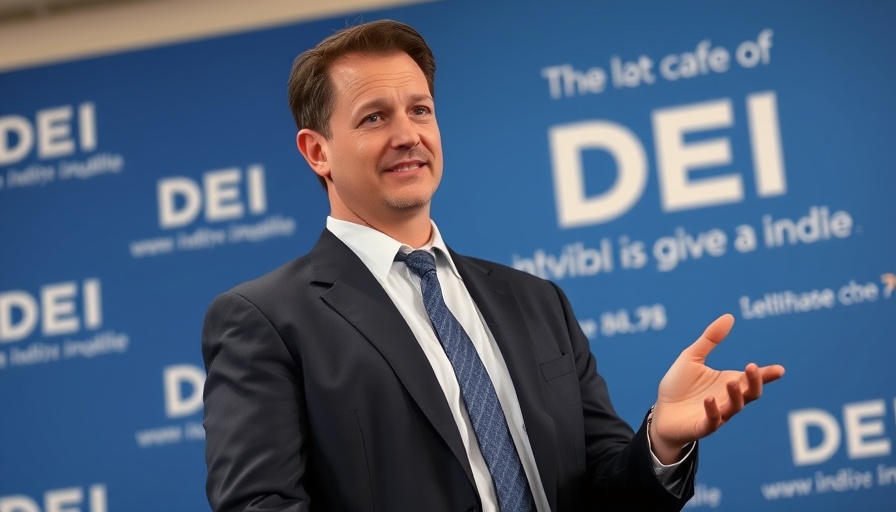
Marriott's CEO Takes a Stand on DEI
In a bold move that has reverberated throughout the corporate world, Marriott’s CEO, Anthony Capuano, has spoken out in favor of Diversity, Equity, and Inclusion (DEI) initiatives. Following his interview where he emphasized the importance of these principles at work, he was inundated with emails—around 40,000 from associates eager to engage in the conversation.
The Impact of DEI Initiatives
Capuano's commitment comes at a pivotal moment when many companies are re-evaluating their approaches to workforce representation. Marriott was recognized as one of the Best Companies to Work For, a title that reflects its striving culture that values all employees. This recognition demonstrates how organizations committed to DEI initiatives often see not just increased morale, but also improved performance metrics. Studies indicate that companies with diverse teams are 35% more likely to outperform their industry peers in profitability.
Why Now? The Cultural Context
The timing of Capuano’s comments is no coincidence. Following a turbulent period that exposed deep-seated inequities across numerous sectors, businesses are under pressure to not only speak out against injustice but to also implement real, actionable changes. The societal call for accountability has reshaped corporate strategies, pushing them toward prioritizing equitable workplace practices.
Marriott's Journey Toward Inclusivity
Marriott International has made significant strides in enhancing its DEI framework. The company aims to not just fill quotas, but foster an environment where every employee—irrespective of their background—feels valued. Capuano acknowledged this, and also pointed out the need for constant introspection and evolution within the company’s existing policies. For instance, introducing employee resource groups has become a vital tool for giving employees a voice.
Potential Risks of Ignoring Employee Concerns
Ignoring the call for DEI initiatives, as some companies have done, carries significant risks. A lack of diversity can lead to a homogenous culture that doesn’t resonate with a diverse customer base, potentially harming brand loyalty and sales. Moreover, internal dissatisfaction can lead to high turnover rates and poor mental health among employees, which, as research shows, negatively impacts productivity.
A Path Forward: Actionable Insights
For organizations looking to follow Marriott’s lead, there are key factors to consider:
- Engagement: Foster an open dialogue where employees can express their concerns and suggestions.
- Training: Implement training programs that focus on unconscious bias and systemic barriers present in workplaces.
- Measurement: Establish clear metrics to track the success of DEI initiatives, ensuring accountability in reaching diversity goals.
Why Employee Feedback Matters
The overwhelming response to Capuano’s comments highlights a critical aspect of modern work culture: employees want their voices heard. This surge of communication isn’t merely an echo of approval; it reflects a deeper need for connection, understanding, and transparency—elements that are paramount for mental well-being at work.
Inspiration from Successful Models
Capuano’s approach mirrors successful DEI models implemented by companies across various sectors. Firms like Microsoft and Google have also engaged their workforce proactively, resulting in higher employee satisfaction and retention rates. These organizations serve as examples of how listening and acting upon employee needs can create a more harmonious workplace.
Conclusion: The Value of DEI in the Workplace
As businesses navigate this new era, the integration of DEI principles will play a crucial role in shaping their future. Organizations like Marriott illustrate the potential for transformational change sparked by listening to their employees and committing to inclusivity. With employees more engaged and invested, companies are likely to thrive in ways they never imagined.
 Add Row
Add Row  Add
Add 




 Add Row
Add Row  Add
Add 

Write A Comment